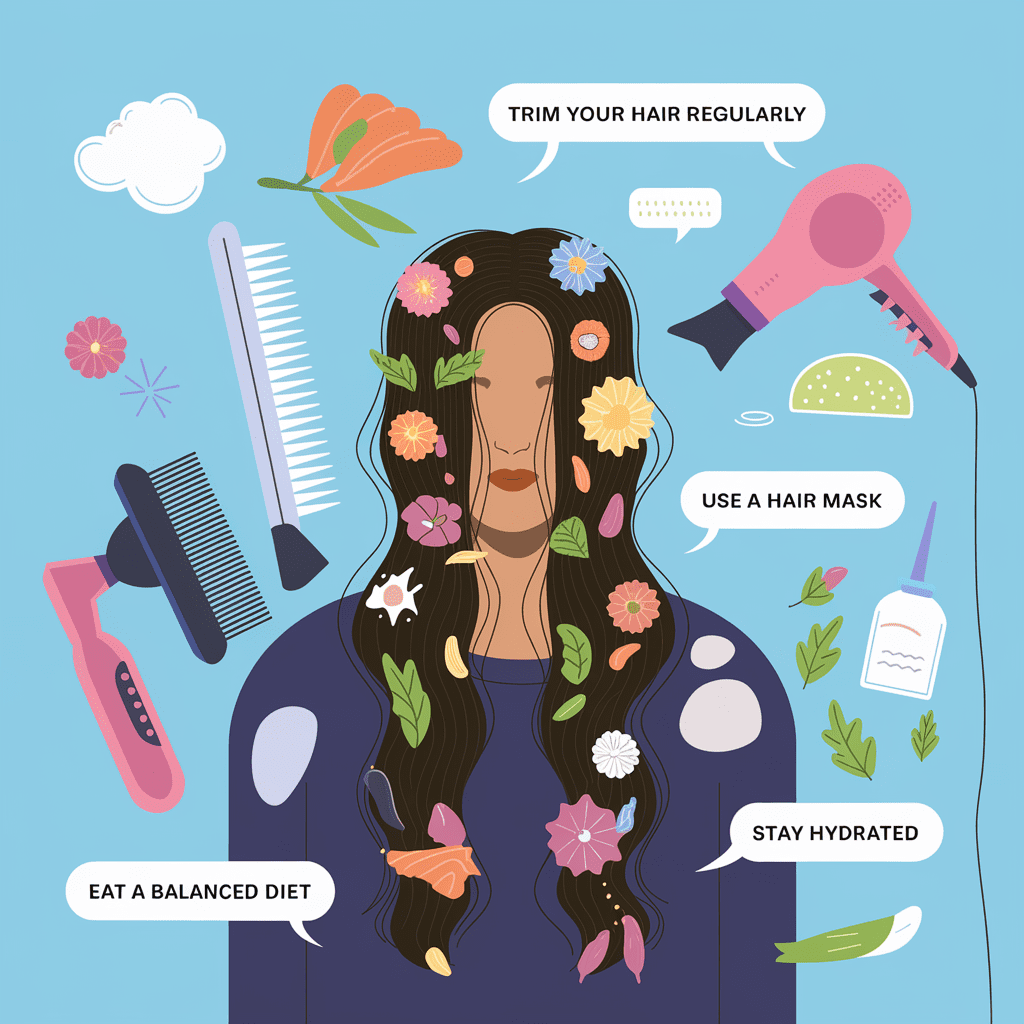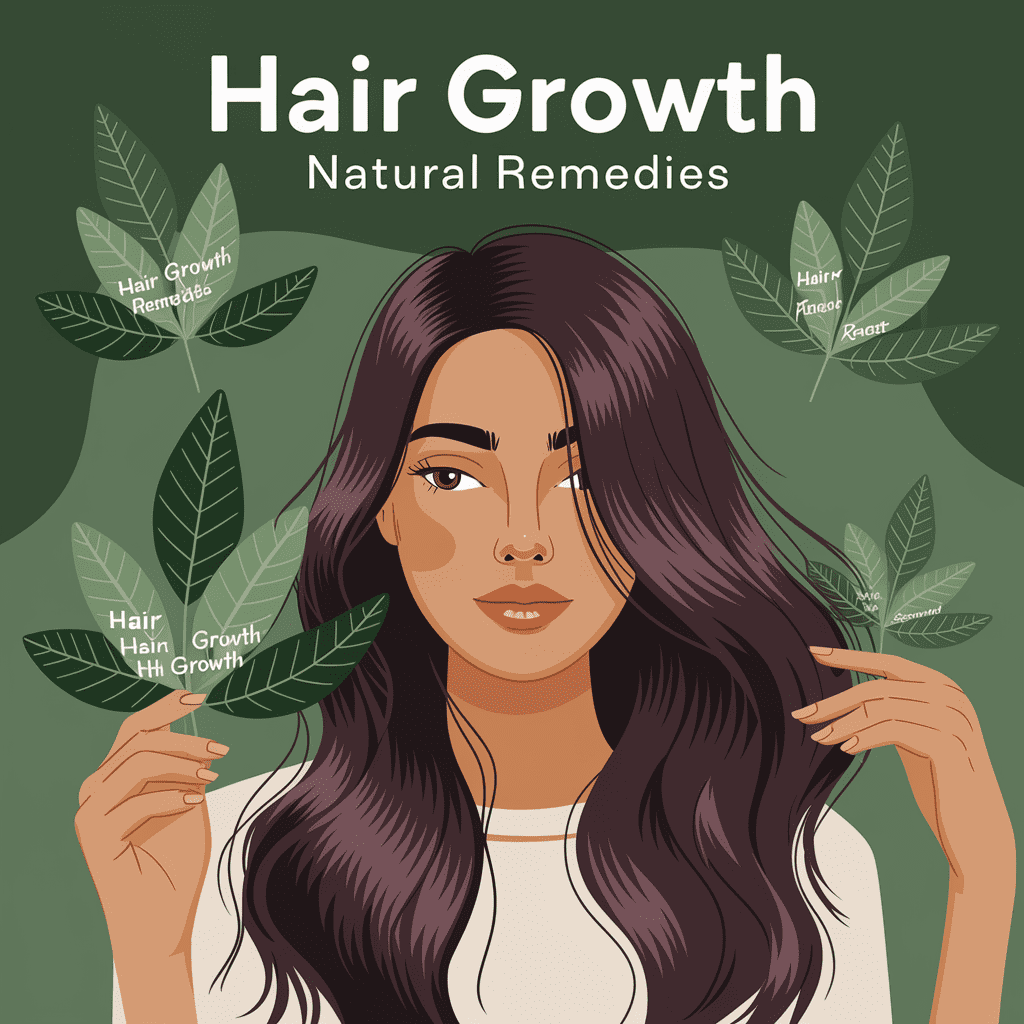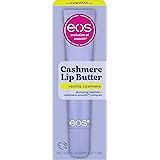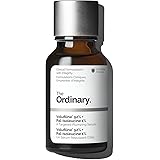Hair growth is a common concern for many people. Everyone desires healthy, thick hair.
In this blog, we’ll explore the essentials of hair growth. Understanding what influences hair growth can help you maintain your locks. Hair growth depends on many factors. These include genetics, diet, and overall health. Hair grows in cycles, with each strand having its own growth phase.
Proper care and the right products can support these cycles. Nutrients like vitamins and minerals play a crucial role too. Stress and other lifestyle factors can impact hair health. Knowing how to manage these elements can lead to better hair growth. Stay tuned to learn more about nurturing your hair naturally and effectively.
Nutrition For Hair Growth
Good nutrition plays a big role in hair growth. Eating the right foods gives your hair the best chance to grow strong and healthy. This section will cover essential vitamins and protein intake for hair growth.
Essential Vitamins
Vitamins are important for hair health. Vitamin A helps the scalp produce sebum, which keeps hair moisturized. Carrots, sweet potatoes, and spinach are good sources of Vitamin A. Vitamin C helps with collagen production, which is vital for hair structure. You can get Vitamin C from oranges, strawberries, and bell peppers.
Vitamin E improves blood circulation, which supports hair growth. Nuts, seeds, and leafy greens are rich in Vitamin E. Biotin, also known as Vitamin B7, is another key vitamin. Eggs, almonds, and whole grains are great sources of Biotin.
Protein Intake
Protein is the building block of hair. Without enough protein, hair can become weak and brittle. Lean meats, fish, and eggs provide good amounts of protein. If you are vegetarian, consider beans, lentils, and tofu as protein sources.
Including protein in every meal helps maintain hair health. Hair strands are made of keratin, a type of protein. Consuming enough protein supports the production of keratin, leading to stronger hair.

Hair Care Routine
A good hair care routine is essential for healthy hair growth. It involves using the right products and techniques to nourish your hair. This guide will cover the basics of a proper hair care routine. It includes the use of shampoo and conditioner, as well as scalp treatments. Each step in your routine
can make a big difference in the health of your hair.
Shampoo And Conditioner
Choosing the right shampoo and conditioner is crucial. Look for products that suit your hair type. For example, if you have oily hair, choose a shampoo that controls oil. For dry hair, pick a moisturizing shampoo. Conditioners should also match your hair type.
Wash your hair with shampoo to clean the scalp and remove dirt. Apply conditioner from the middle of your hair to the ends. Leave it on for a few minutes before rinsing. This helps to keep your hair soft
and manageable.
Scalp Treatments
Healthy hair growth starts with a healthy scalp. Scalp treatments can improve blood circulation and promote hair growth. Use a scalp scrub or treatment once a week. This helps to remove dead skin cells and unclog hair follicles.
Massage your scalp with your fingertips. This increases blood flow and stimulates the hair follicles. You can also use essential oils like tea tree or peppermint oil. These oils have properties that
nourish the scalp and promote hair growth.
| Hair Type | Recommended Shampoo | Recommended Conditioner |
|---|---|---|
| Oily | Oil-control shampoo | Lightweight conditioner |
| Dry | Moisturizing shampoo | Deep-conditioning conditioner |
| Normal | Balanced shampoo | Regular conditioner |
Avoiding Hair Damage
Hair growth can be hindered by damage. Preventing damage is crucial for healthy hair. Simple habits can protect your hair.
Heat Protection
Heat styling tools can cause significant damage. Use them sparingly. Always apply a heat protectant before styling. This minimizes the risk of breakage.
Opt for tools with adjustable heat settings. Lower temperatures are less harmful. Dry your hair naturally when possible. This reduces heat exposure.
Chemical Treatments
Chemical treatments can weaken hair. Limit the use of dyes, perms, and relaxers. These treatments can strip the hair of natural oils.
If you must use chemicals, seek professional help. Follow aftercare instructions to maintain hair health. Deep conditioning treatments help replenish moisture.

Natural Remedies
Many people seek natural remedies for hair growth. These methods are popular for being gentle and effective. They use natural ingredients to nourish the scalp and strengthen hair. Let’s explore some popular options.
Herbal Oils
Herbal oils are a popular choice for boosting hair growth. They contain nutrients that improve hair health.
Coconut oil is well-known for its moisturizing properties. It prevents hair breakage and promotes growth. You can apply it to your scalp and hair, then leave it on for a few hours before washing.
Castor oil is another great option. It is rich in ricinoleic acid, which improves blood circulation to the scalp. This stimulates hair follicles. Use it once or twice a week for best results.
Rosemary oil has been shown to improve hair thickness. Add a few drops to your shampoo or mix it with a carrier oil. Massage it into your scalp for a relaxing and effective treatment.
Diy Hair Masks
DIY hair masks are easy to make at home. They use simple ingredients to nourish and strengthen your hair. Here are some popular recipes.
Avocado and Olive Oil Mask:
- Mash one ripe avocado.
- Mix in two tablespoons of olive oil.
- Apply to damp hair and leave for 30 minutes.
- Rinse thoroughly with warm water.
Egg and Yogurt Mask:
- Beat one egg.
- Mix in half a cup of plain yogurt.
- Apply to clean, damp hair.
- Leave for 20 minutes, then rinse with cool water.
Honey and Banana Mask:
- Mash one ripe banana.
- Mix in two tablespoons of honey.
- Apply to hair and scalp.
- Leave for 25 minutes and rinse with warm water.
These natural remedies can help you achieve healthy hair growth. Try them and see the difference for yourself.
Professional Treatments
Professional treatments offer advanced solutions for hair growth. They can be more effective than home remedies. There are many options to explore. Let’s dive into some popular treatments.
Salon Services
Many salons offer treatments to boost hair growth. These treatments often use specialized products. Scalp massages are common. They increase blood flow to the hair follicles. This can help hair grow faster and thicker.
Another popular service is hair masks. These masks contain nutrients that strengthen hair. Regular use can lead to healthier hair. Some salons also offer laser therapy. This treatment uses low-level lasers to stimulate hair growth.
Medical Options
Doctors can prescribe treatments for hair growth. One common option is minoxidil. This medication is applied to the scalp. It can help to regrow hair and prevent further loss.
Another option is finasteride. This pill helps reduce hair loss. It works by blocking a hormone that causes hair loss. Some people opt for hair transplants. This surgical procedure moves hair from one part of the scalp to another. It can provide a permanent solution to hair loss.
Consult a doctor before starting any medical treatment. They can help you choose the best option for your needs.

Lifestyle Factors
Healthy hair growth is not just about the products you use. Lifestyle factors play a crucial role too. Your daily habits can significantly impact your hair health. By focusing on stress management and sleep quality, you can enhance your hair growth journey.
Stress Management
Chronic stress disrupts the hair growth cycle. It can cause hair to fall out. Practicing stress management techniques is important. Activities like yoga and meditation can help. Regular exercise also reduces stress levels. A calm mind promotes healthy hair growth.
Sleep Quality
Sleep is vital for overall health. It also affects hair growth. Poor sleep quality can hinder hair regeneration. Aim for 7-8 hours of sleep each night. A good night’s sleep allows your body to repair and grow hair. Create a bedtime routine for better sleep.
Hair Growth Myths
Hair growth is a topic surrounded by many myths. These myths often cause confusion and can lead to ineffective practices. Let’s clear up some of the most common hair growth myths with facts backed by science.
Common Misconceptions
Many believe that cutting hair makes it grow faster. This is not true. Hair grows from the roots, not the ends. Cutting hair does not affect the growth rate. Another common myth is that shampooing daily leads to hair loss. Regular washing keeps the scalp clean and healthy. It does not cause hair loss.
Some people think that stress causes gray hair. Stress can cause hair to fall out, but it does not turn hair gray. Gray hair is mainly due to genetics and aging. People also believe that wearing hats can make hair fall out. This is false. Tight hats may damage hair, but they do not cause hair loss.
Scientific Evidence
Scientific studies have debunked many hair growth myths. For example, there is no evidence that frequent haircuts impact growth speed. Hair grows at a steady rate of about half an inch per month. This is regardless of how often it is cut.
Research shows that a balanced diet can promote healthy hair growth. Nutrients like vitamins, iron, and protein are essential. Lack of these can lead to hair thinning and loss. Studies also reveal that stress can cause temporary hair loss, but it does not make hair turn gray.
Science confirms that hair loss is often hereditary. This means it runs in families. Conditions like male or female pattern baldness are genetic. Treatments include medication and lifestyle changes. Consulting with a healthcare provider is recommended for effective solutions.
Tracking Progress
Tracking your hair growth journey can be both exciting and motivating. Regularly monitoring progress helps you see what works best for your hair. Plus, it keeps you focused on your goals.
Hair Growth Journals
Keeping a hair growth journal is a great way to track your progress. Write down your observations, routines, and any changes you notice.
Here’s what to include in your journal:
- Dates: Note the date of each entry.
- Hair Length: Measure and record your hair length monthly.
- Products Used: List the products you use daily.
- Diet and Supplements: Record any changes in your diet or supplements.
- Photos: Include photos to see visual progress.
A journal helps you identify patterns and make necessary adjustments. Consistency is key!
Measuring Techniques
Accurate measurement is essential for tracking hair growth. Here are some effective techniques:
- Tape Measure: Use a flexible tape measure for precise length. Start from the scalp and measure to the ends.
- Photo Comparisons: Take regular photos and compare them side by side.
- Hair Marking: Mark a specific strand and track its growth over time.
- Hair Growth Apps: Use apps designed to track hair growth. They often come with reminders and tips.
Choose a method that works best for you. Consistent measurements provide clear insights into your hair growth journey.
Frequently Asked Questions
What Promotes Hair Growth?
A balanced diet, proper hair care, and stress management promote hair growth. Use gentle hair products. Regular scalp massages can also stimulate hair follicles.
How Often Should I Wash My Hair?
Washing hair 2-3 times a week is ideal. Over-washing can strip natural oils. Adjust frequency based on hair type and lifestyle.
Can Stress Cause Hair Loss?
Yes, stress can lead to hair loss. It disrupts the hair growth cycle. Managing stress through relaxation techniques can help.
What Vitamins Support Hair Growth?
Vitamins A, C, D, E, and B-complex support hair growth. Biotin and iron are particularly important. Ensure a balanced diet or consider supplements.
Conclusion
Healthy hair growth is achievable with the right care. Natural remedies, balanced diet, and proper hair care can make a difference. Consistency is key. Avoid harsh chemicals and excessive heat. Hydrate and nourish your scalp regularly. Patience is essential; results take time.
Stay committed to your hair care routine. Healthy hair boosts confidence and overall well-being. Embrace the journey to better hair. You deserve it!

